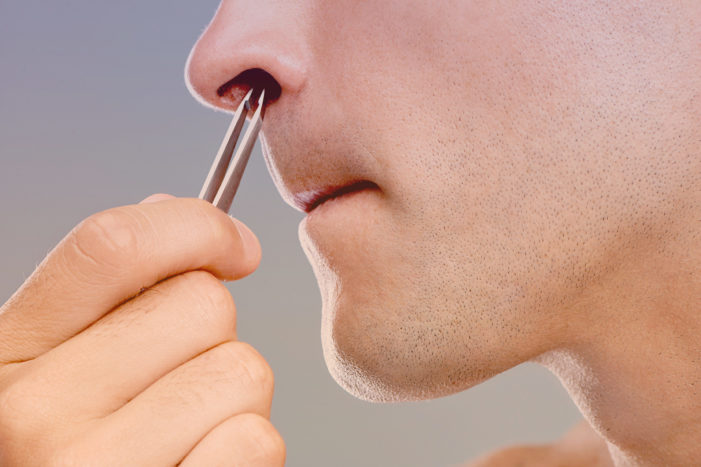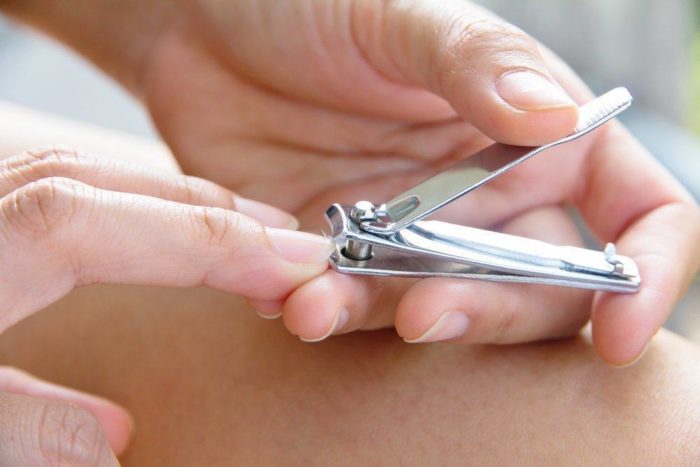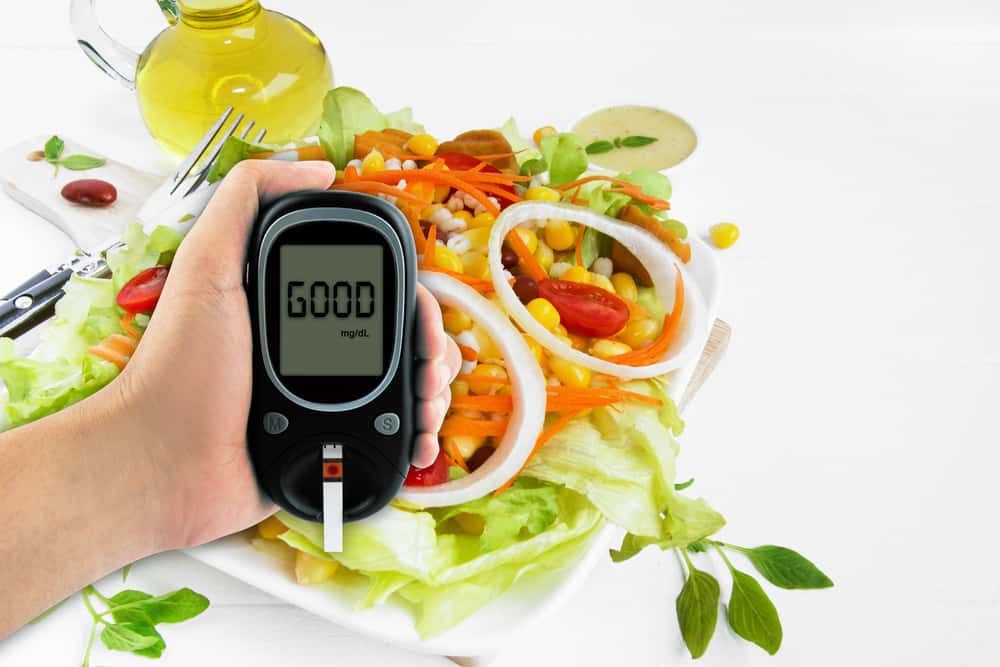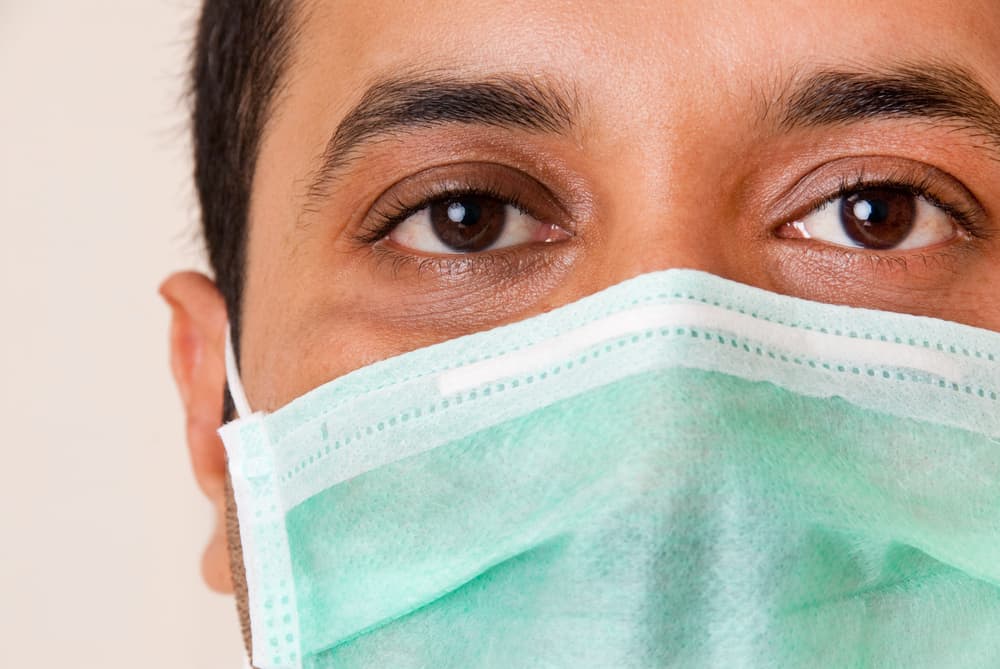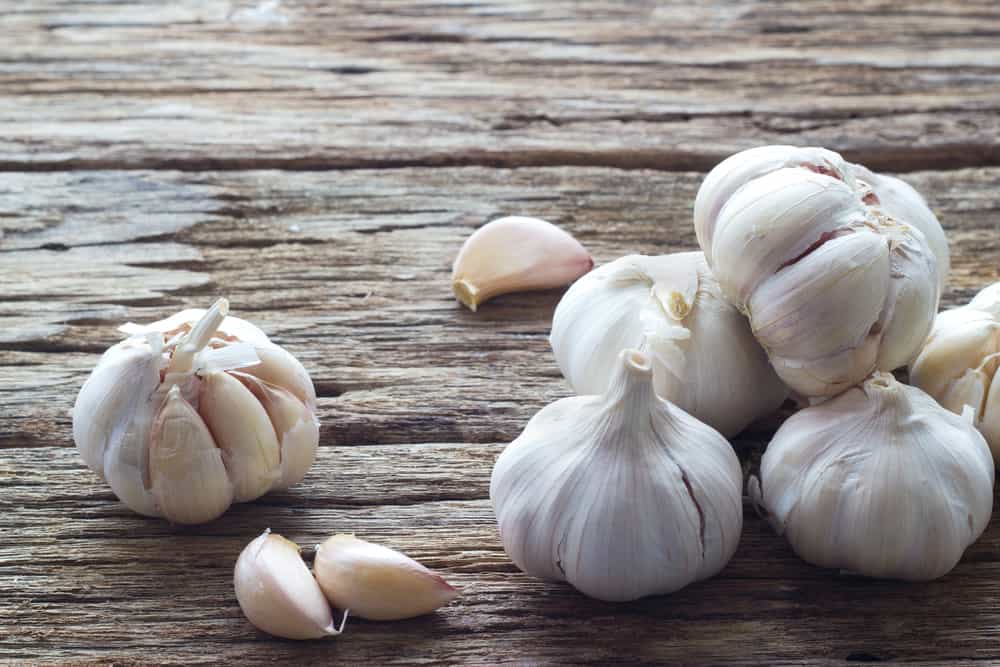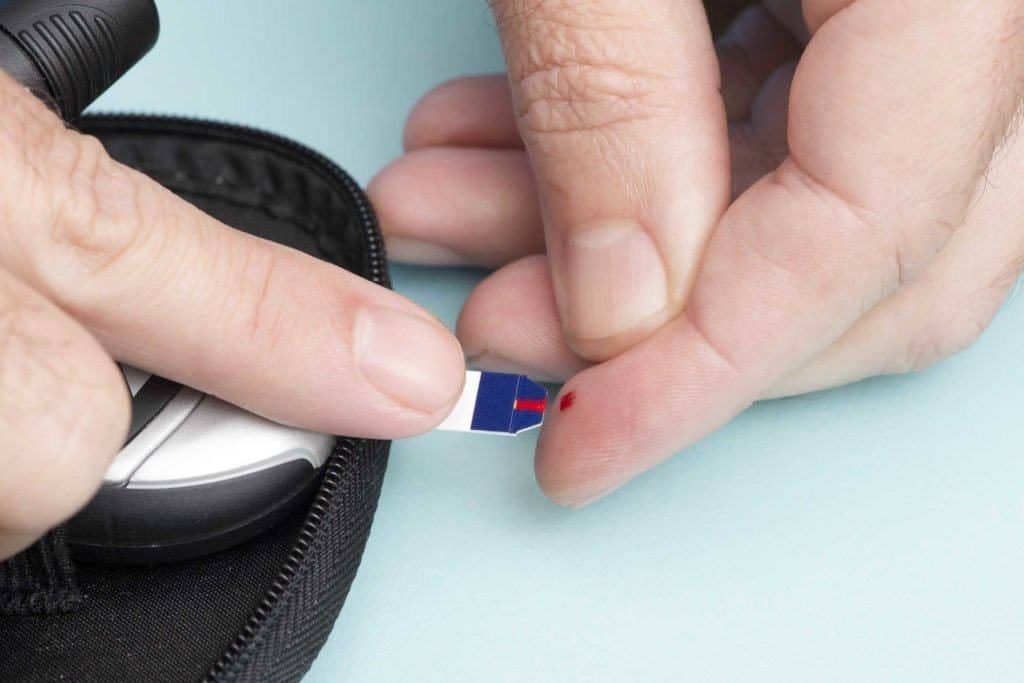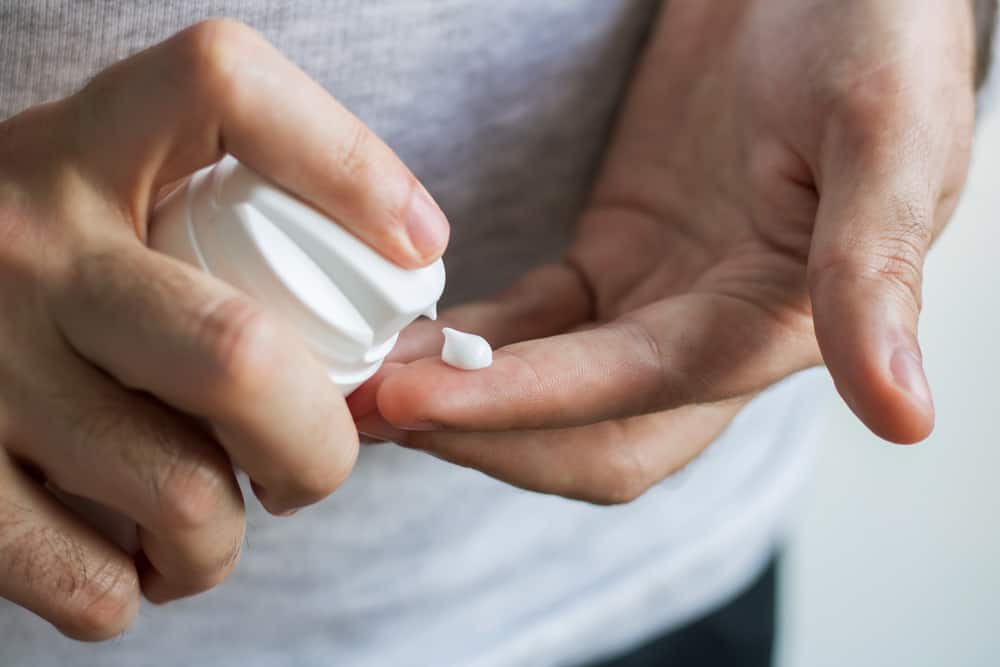Contents:
- Medical Video: What Causes Nosebleeds
- What is a nosebleed?
- Types of nosebleeds
- 1. Anterior nosebleeds
- 2. Posterior nosebleeds
- Various factors that cause nosebleeds
- Common causes of sudden nosebleeds
- Causes of nosebleeds in children
- When to ask for medical help?
- How to deal with nasal bleeding
- Nosebleed care from a doctor
- Natural nosebleeds
- Home care for nose bleeds
- Various ways to prevent nosebleeds
- Nutrition is important to prevent nosebleeds
Medical Video: What Causes Nosebleeds
Exit blood from the nose or what is called a nosebleed is sure to make you panic. Especially if sudden nosebleeds occur without known cause. The condition in medical terms called epistaxis can occur at any age from children to parents. The causes of nosebleeds are very diverse, therefore the nosebleeds and their treatments also vary depending on the origin of their appearance.
Although it does not always indicate a dangerous health condition, but nose bleeding in children and also adults needs care from both the doctor and naturally. Here's the full review.
What is a nosebleed?
The nose is one part of the body that contains many small blood vessels that are easily broken. When a blood vessel breaks, the nose will bleed. So, bleeding from the nose happened akibat rupture of blood vessels in the nose. However, this condition usually only occurs in one nostril.
If the bleeding is heavy enough, blood can fill the nostrils on the affected side and overflow towards the nasopharynx (the area behind the nasal cavity and at the top of the back of the throat).Blood can also drip into the throat or go down to the stomach, causing a person to spit or even vomit blood.
Bloody nose including symptoms that are quite common in all ages. However, generally children experience the possibility of bleeding twice as high as adults.
In some people the bleeding will stop only by pressing the nose but in others requires further medical treatment. Therefore, try not to underestimate it if this happens to you or your little one.
Types of nosebleeds
Before finding out the cause of nosebleeds, here are the various types of nose bleeding you need to know:
Nasal bleeding can be dramatic and frightening, fortunately most of these conditions are not serious and can be handled quite easily. Nosebleeds are divided into two types, depending on the origin of the bleeding, namely:
1. Anterior nosebleeds
The anterior nosebleed is bleeding from a vein at the very front of the nose which causes more than 90% of epistaxis. This type is the easiest to handle, either with doctor's care or only with home care.
2. Posterior nosebleeds
This type is one of the less common ones compared to anterior nosebleeds. This condition often occurs in the elderly. Bleeding comes from arteries in the back of the nose. So it is more difficult to handle alone and usually requires the treatment of an ENT doctor.
Various factors that cause nosebleeds
Common causes of sudden nosebleeds
The causes of nosebleeds vary greatly. Between one person and another person may be caused by different causes. Here are some common things that can cause nose bleeds, including:
Certain health problems
The first cause of nosebleeds is due to certain health problems. If you experience sudden nosebleeds without you knowing the cause, this might be a result of liver, kidney disease, or excessive alcohol consumption.
This condition can also be caused due to other health problems that can reduce the body's ability to freeze blood. Hypertension and congestive heart failure for example can cause sudden nosebleeds. Even colds and allergies can also cause sudden nosebleeds due to irritated nasal lining.
Dry air
Apart from being a health problem, the most common cause of nosebleeds is due to dry air. Usually this condition will be more common in cold climates when many upper respiratory tract infections occur and when the temperature and humidity rise and fall dramatically.
Temperature changes from the cold outside environment into a warm and dry home will also make the nose more susceptible to bleeding.
Not only in cold climates, sudden nosebleeds can also occur in hot and dry climates with low humidity or when there are seasonal changes. These conditions can cause the nasal lining to dry until it cracks and bleeds.
Use of blood thinning drugs
Various blood thinning drugs, such as aspirin, Coumadin or Jantoven (warfarin), Plavix anti-platelet drug (clopidogrel bisulfate)and nonsteroidal anti-inflammatory drugs can actually make you experience sudden nosebleeds.
The cause of this nosebleed is because blood thinning drugs will change the ability of the blood to clot and also freeze. As a result, bleeding in the nose cannot be avoided and is difficult to stop.
Usually this drug is used for people who have a heart condition atrial fibrillation or an irregular heartbeat that helps prevent blood clots. Because, blood clots can actually cause strokes or heart attacks. Unfortunately, this clotting effect also increases the risk of bleeding.
Injury to the nose
Unintentional injuries to the nose can make blood vessels in the nostrils damaged until they bleed. The cause of this one nosebleed often occurs in children when scratching and scraping their noses. However, in adults the habit of scratching an itchy nose can also make the nose hurt. So that the nose will unwittingly bleed.
Hormonal changes during pregnancy
Sudden nosebleeds during pregnancy are not things to worry about excessively. Usually the cause of sudden nosebleeds during pregnancy is due to hormonal changes.
High levels of hormones during pregnancy increase the blood flow of estrogen and progesterone in all mucous membranes in the body including the nose. This membrane will then swell and widen to suppress the blood vessels in it. As a result, blood vessels can rupture and make the nose bleed during pregnancy.
Causes of nosebleeds in children
Not much different from the cause of nose bleeding in general, nosebleeds in children are also caused by various things such as dry air and certain health problems. But broadly speaking, there are several other causes that make children nosebleeds such as:
Insert foreign objects into the nostrils
Children are overwhelmed by considerable curiosity. Especially at the age of a toddler, usually children can not distinguish between what really can be done and what is not.
Not infrequently the child has a sense of curiosity about objects that are around him and use it for things that are not supposed to. For example, inserting a blunt object into the nose that can cause injury to cause nosebleeds in children.
In addition, most children also have the habit of digging the nostrils without knowing the danger if not done carefully. Especially if your child's nails are in a long state, further increasing the wound that results in nosebleeds in children. As a result, the nasal membranes can be injured until they finally make a nosebleed in the child.
Fatigue
When your baby is too tired due to certain activities, nosebleeds can occur. The cause of nosebleeds in this one child needs to be watched out because it is vulnerable to the background of certain health problems.
When children experience fatigue, usually blood vessels will be easily tense until they finally break and cause sudden nosebleeds. Try to see a doctor if your child often experiences nose bleeding due to fatigue.
When to ask for medical help?
You should immediately contact a doctor if:
- Occurs quite often and repeatedly in the adjacent time.
- You experience additional bleeding from other places besides the nose, such as in urine or feces.
- Easy to experience bruising.
- When under the influence of blood thinning drugs, such as aspirin or warfarin (Coumadin).
- Have diseases related to blood clots, such as liver, kidney, or hemophilia (inability of the blood to clot).
- Just had chemotherapy.
- Still bleeding after pinching the nose for 10 minutes.
- Feeling dizzy or like wanting to faint.
- Have a fast heartbeat or have difficulty breathing.
- Experiencing coughing or vomiting blood.
- Having a fever of more than 38.5 ° C.
How to deal with nasal bleeding
The following are various ways to deal with bloody nose from doctor care to natural nosebleeds and home remedies.
Nosebleed care from a doctor
If you experience continuous nose bleeding and consult a doctor, the doctor will check the condition of the nose to determine the origin of bleeding.
Basically, the treatment steps taken depend on the cause. The doctor will use topical nosebleeds to anesthetize the nasal lining and constrict blood vessels. In addition, the doctor will usually clean the clots and crust from inside your nose.
Various other treatments can also be done such as:
- Authorization, namely the technique of stopping bleeding using silver nitrate or heat energy (electrocautery) by burning blood vessels with electricity or heat.
- Nasal packing, namely the placement of strips of gauze into the nasal cavity to suppress the source of bleeding.
- Medication according to conditions. For example, giving drugs to control blood pressure and reduce or stop using blood thinners.
- Surgery and repair in the nose if needed.
Natural nosebleeds
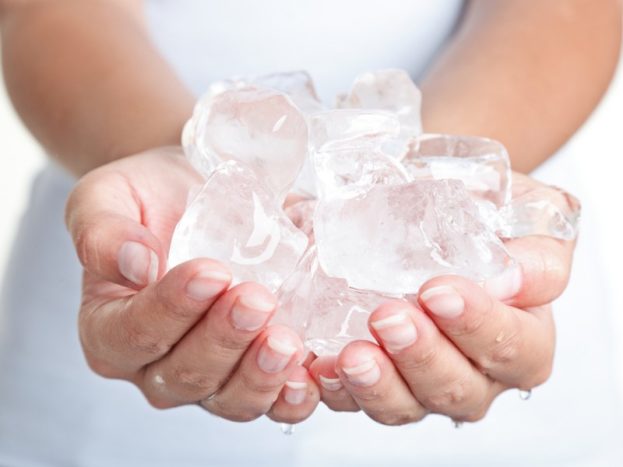
Besides various treatments from doctors, there are various kinds of natural nosebleeds that you can find at home such as:
Ice Cube
The first natural medicine for nosebleeds is ice cubes. Ice cubes can be used to stop bleeding by constricting the blood vessels in the nose. You can take a few blocks of ice cubes and cover them with a soft cloth or towel.
Try not to put ice cubes directly on the nose because it can cause tissue damage. Then, compress the outside of the nose with this natural nosebleed for several minutes until the bleeding subsides.
Red onion
Besides ice cubes, red onion can also be a natural nosebleed remedy that you can find at home. The presence of sulfur compounds contained in shallots can help freeze blood naturally.
Not only that, shallots are also rich in vitamin C and bioflavonoids which function to strengthen capillary blood vessels. That way, red onion can stop bleeding due to broken blood vessels.
To get the medicinal benefits of onion, you need to cut thin onions and stick them under the nose. Breathe in the aroma for a few minutes to help relieve bleeding.
Salt water
The third natural nosebleed remedy is salt water. Salt water can be used to help relieve bleeding due to cold and dry air.
This water helps moisturize the inner lining of the nose and reduces irritation of the membranes. Salt is also able to narrow the flow of blood vessels in the nose until eventually bleeding will stop.
The trick, dissolve the salt in a glass of warm water. Then, take the cotton and wet it with salt water. Put enough gas water from the cotton through the nostrils gently with your head slightly raised.
Lemon juice
Lemon is one of the fruits that has a high acidity and can be used as a nosebleed medicine. This is useful for stopping bleeding.
In addition, the content of vitamin C in lemon is also very good for strengthening blood vessels damaged in the nose. Treating nasal bleeding using lemon can be done by dripping lemon juice into the inner cavity of the nose.
Home care for nose bleeds
When the nose bleeds, don't panic. In addition to nosebleeds from the doctor, you can take various steps to handle independently at home, including being able to deal with nosebleeds in children. Following are the steps:
- Pinch all parts of the nose that bleed using the thumb and forefinger.
- Press firmly towards the face by carrying it along with the bones on your face.
- Lean forward with a slight bow of the head. If you tilt your head back, blood can flow back into your throat and can cause you to choke or breathe blood.
- Hold your nose for at least five minutes.
- Repeat as needed until bleeding in the nose stops.
- Sit quietly, keep your head higher than the heart.
- Use one of the various natural medicine options to relieve bleeding.
Various ways to prevent nosebleeds
To prevent nasal bleeding, you need to take various steps such as:
- Keep the nose layer moist and soft by applying a thin layer of petroleum jelly or antibiotic ointment three times a day. Generally the products used are like Bacitracin, A and D Ointment, Eucerin, Polysporin, and Vaseline.
- Routinely cut your child's nails to prevent nosebleeds in children.
- Prevent dry air by moisturizing the air using a humidifier.
- Use saline nose spray to moisturize dry nasal membranes.
- Quitting smoking because cigarettes can dry up the nose, increasing the risk of bleeding.
Nutrition is important to prevent nosebleeds
Apart from using the steps above, there are various nutrients that can prevent nosebleeds. The following are various nutrients that you can consume daily to prevent nasal bleeding, namely:
1. Multi-vitamin and mineral supplements, and children's formulas
Taking vitamin E, vitamin A, vitamin C, copper, manganese, selenium, and zinc greatly helps treat and prevent nasal bleeding and overall body health.
The child's diet is very bad which results in nasal bleeding and other health problems. Therefore, try to meet the needs of children's vitamins and minerals from food and supplements.
However, if you want to choose the right supplement, ask your doctor for help to determine it according to the child's body condition.
2. Bioflavonoids
Bioflavonoids are natural antioxidants and destroyers of free radicals. This one compound can help prevent tissue damage. If you lack bioflavonoids, this can increase your susceptibility to the risk of nasal bleeding and other health problems.
3. Vitamin C
Vitamin C works with bioflavonoids as antioxidants to promote healing in the human body. Lack of vitamin C in the diet will increase the risk of nose bleeding.
In addition, vitamin C also helps improve the child's immune system. A healthy and strong immune system makes it easy for children to get infections, which can be one of the causes of nasal bleeding.



